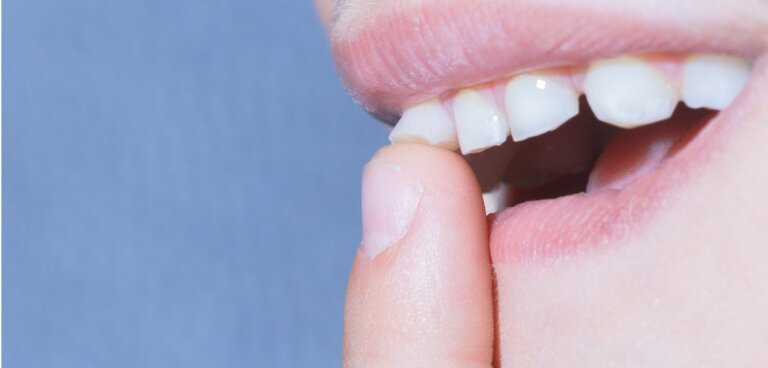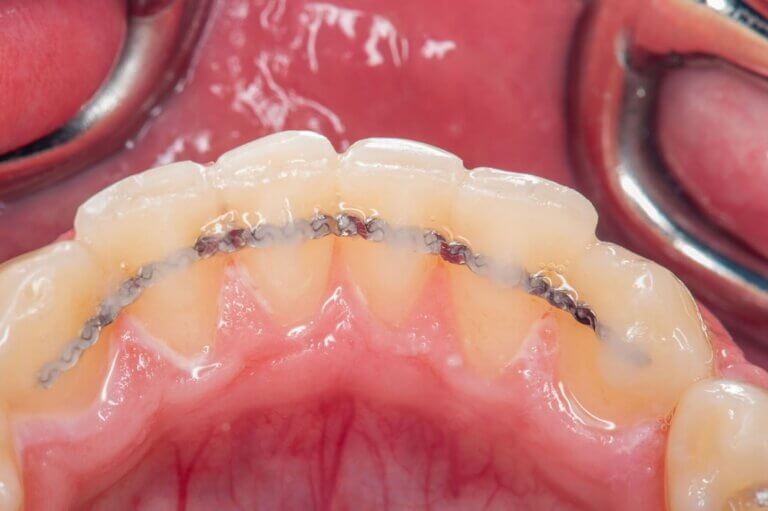Loose Tooth

What Is A Loose Tooth?
A Loose Tooth is a dental problem that occurs when a tooth becomes less secure in its socket. It can affect people of all ages, and can happen for a variety of reasons. For example, spontaneously loose teeth in children between the ages of 5-13 years is normal since this is the age range when kids start losing their baby teeth for adult teeth. However, if an adult has a loose tooth, it is not normal and may indicate various pathological reasons such as tooth trauma, gum disease, bruxism, bite problems, and more. Identifying the underlying cause of the loose tooth is crucial in determining the appropriate treatment and preventing further damage to the affected tooth or surrounding teeth.
Before you contact a Toronto dentist to examine A Loose Tooth, there are some things you should know as a patient:
- Why Do I Have A Loose Tooth?
- Signs And Symptoms Of A Loose Tooth
- Treatment Options For A Loose Tooth
- How To Prevent A Loose Tooth
- Managing A Loose Tooth Until You Can See The Dentist
If you have questions about A Loose Tooth or other dental problems, please contact us for more information.
Why Do I Have A Loose Tooth?
There are several reasons why you might have a loose tooth. Some of the common causes include:
- Dental trauma: A traumatic injury, such as a fall or a blow to the face, can loosen a tooth from its socket. This can cause the ligaments that hold the tooth in place to become stretched or torn. An immediate visit to the dentist is required to realign and splint the tooth so that it can heal in the bony socket.
- Gum disease: Gum disease is an infection that affects the tissues that support your teeth. When left untreated, it can cause bacteria-induced destruction of the alveolar bone and gums that support the tooth. Not only will this cause the gum to recede, exposing the roots of the teeth, it will make the tooth loose and eventually fall out. A visit to the dentist is needed to examine and treat the gum disease.
- Bruxism: Bruxism, also known as teeth grinding, can cause excessive pressure on all the teeth, which can cause them to feel loose. Dentists will diagnose your bruxism and usually recommend making a dental night guard.
- Bite problems: A misaligned bite can put uneven pressure on the teeth, leading to loosening.
- Exfoliation of primary teeth: In children, the natural process of exfoliation or shedding of baby teeth between the ages of 5-13 years of age can cause teeth to become loose and fall out. This is a normal part of adolescent growth, but should be examined by a dentist if the tooth is stubborn and will not fall out on its own.
- Metabolic disorders: Certain metabolic disorders and diseases of malnutrition, such as vitamin C deficiency (scurvy), can cause the teeth to become loose.
It’s important to identify the cause of your loose tooth in order to receive the appropriate treatment and prevent further dental issues. If you have further questions about A Loose Tooth, please contact us.
Signs And Symptoms Of A Loose Tooth
If you have a loose tooth, you may experience some of the following signs and symptoms:
- Tooth mobility: The tooth feels wobbly or moves around in its socket when you touch it.
- Tooth pain: You may experience pain or discomfort when you touch or apply pressure to the loose tooth. This is prevalent if you are experiencing tooth trauma, gum disease, bite problems, bruxism, or exfoliation of a primary tooth.
- Bleeding: If the tooth is loose due to gum disease, you may notice bleeding when you brush or floss. This is prevalent if you are experiencing tooth trauma, gum disease, bite problems, bruxism, or exfoliation of a primary tooth.
- Gum swelling: You may notice swelling or inflammation around the affected tooth, especially in. This is prevalent if you are experiencing tooth trauma, gum disease, bite problems, bruxism, or exfoliation of a primary tooth.
- Bad breath: If the loose tooth is due to gum disease, you may experience bad breath.
- Changes in your bite: You may notice that your bite feels different, or that you can no longer bite down on certain foods.
If you are experiencing any of these symptoms, it’s important to see your dentist as soon as possible to prevent further damage or tooth loss. If you have further questions about A Loose Tooth, please contact us.
Treatment Options For A Loose Tooth
The treatment for a loose tooth will depend on the underlying cause of the problem. Some of the common treatment options include:
- Splinting: Splinting is a technique where the loose tooth is bonded to the surrounding teeth to provide support and stability while the tooth heals. This is usually done if the tooth sustained trauma or is a result of a bite problem.
- Scaling and root planing: If the loose tooth is due to gum disease, your dentist may recommend a deep cleaning procedure called scaling and root planing to remove the plaque and bacteria from the roots of the affected tooth.
- Bite adjustment: If the loose tooth is due to a bite problem, your dentist may recommend adjusting your bite to relieve the pressure on the tooth.
- Extraction: If the tooth is severely damaged or cannot be saved, either from tooth trauma, gum disease or deciduous tooth exfoliation, your dentist may recommend extracting it. Teeth can be replaced with dental implants, dental bridges, or dentures.
It’s important to discuss the benefits and risks of each treatment option with your dentist to determine the best course of action for your specific situation. In some cases, a combination of treatments may be necessary to effectively address the problem. If you have further questions about treatment options for A Loose Tooth, please contact us.

How To Prevent A Loose Tooth
While some causes of loose teeth, such as tooth trauma, are difficult to prevent, there are steps you can take to reduce your risk of developing this dental issue. Some of the ways to prevent a loose tooth include:
- Practice good oral hygiene: Brushing twice a day and flossing daily can help remove plaque and bacteria from the teeth and gums, reducing the risk of gum disease and tooth decay.
- Regular dental check-ups: Regular dental visits can help identify dental problems early and prevent them from progressing.
- Wearing a mouthguard: If you participate in contact sports or activities that put your teeth at risk of injury, wearing a mouthguard can help protect them.
- Eating a healthy diet: A diet rich in calcium and other nutrients can help keep your teeth and gums healthy and strong.
- Avoiding bad habits: Avoid habits such as nail-biting, chewing on ice, or using your teeth as tools, as these can cause damage to the teeth and gums.
By taking care of your teeth and gums and making healthy choices, you can reduce your risk of developing a loose tooth and other dental problems. If you have further questions about how to prevent Loose Teeth, please contact us.
Managing A Loose Tooth Until You Can See The Dentist
If you have a loose tooth and cannot see a dentist right away, there are some steps you can take to manage the problem and prevent further damage. These include:
- Avoiding hard or crunchy foods: Eating soft foods can help prevent further damage to the loose tooth and reduce pain. Additionally, avoid eating on the affected side, and chew slowly using the other side of your mouth.
- Practice good oral hygiene: Keeping the area around the loose tooth as clean as possible can help prevent further injury and alleviate some of the tooth pain or tooth sensitivity. Brush and floss gently around the tooth. Rinsing your mouth with warm salt water or mouthwash can help reduce infection, inflammation and alleviate any pain. You can buy any mouthwash available at your pharmacy or health foods store. Alternatively, you can mix a teaspoon of salt in a cup of warm water and swish the solution around your mouth for about 30 seconds before spitting it out.
- Using a cold compress: Applying a cold compress to the affected area can help reduce swelling and discomfort.
- Use Over-the-Counter Pain Medication: Over-the-counter pain medication, such as Advil (ibuprofen) or Tylenol (acetaminophen), can help relieve tooth pain or sensitivity from a loose tooth. Follow the instructions on the label and do not exceed the recommended dose. Unless you have a health condition that prevents you from taking either ibuprofen or acetaminophen, the absolute maximum dose that I recommend patients take for the worst dental pain is 600 mg ibuprofen combined with 1000 mg acetaminophen every 4 to 6 hours.
- Avoiding touching or wiggling the tooth: Touching or wiggling the loose tooth can cause further damage or make the problem worse.
While these steps can help manage a loose tooth in the short-term, it is important to see a dentist as soon as possible to address the underlying problem and prevent further damage or tooth loss. If you have further questions about managing A Loose Tooth, please contact us.

